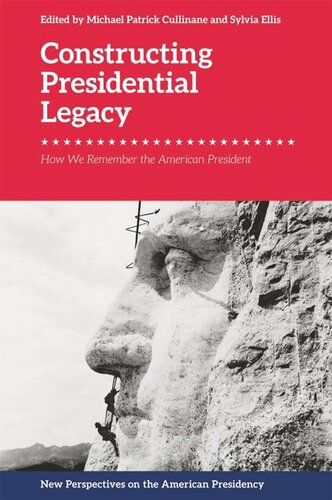

Most ebook files are in PDF format, so you can easily read them using various software such as Foxit Reader or directly on the Google Chrome browser.
Some ebook files are released by publishers in other formats such as .awz, .mobi, .epub, .fb2, etc. You may need to install specific software to read these formats on mobile/PC, such as Calibre.
Please read the tutorial at this link: https://ebookbell.com/faq
We offer FREE conversion to the popular formats you request; however, this may take some time. Therefore, right after payment, please email us, and we will try to provide the service as quickly as possible.
For some exceptional file formats or broken links (if any), please refrain from opening any disputes. Instead, email us first, and we will try to assist within a maximum of 6 hours.
EbookBell Team

0.0
0 reviewsFew personalities loom larger than the President of the United States. Their accomplishments and failures are forensically documented, and their personal lives are under constant scrutiny from the media. But how does a president's legacy emerge, and how to do we come to commemorate it?
In Constructing Presidential Legacy, world-leading experts take a multi-disciplinary approach to explore how presidents are remembered. They look at multiple presidents, including Washington, Jefferson, Lincoln, the Roosevelts, Kennedy, Lyndon Johnson, Eisenhower, Reagan, Obama and Trump. Discover how presidential legacies are constructed during and after their time in the Whitehouse, and how they are portrayed in media such as film, museums, public art, political invocations, pop culture, literature and evolving technological advancements.
H. W. Brands, University of Texas at Austin, USA
Emily J. Charnock, University of Cambridge, UK.
Kristin A. Cook, SOAS, University of London, UK.
Michael Patrick Cullinane, University of Roehampton, UK.
Richard V. Damms, Mississippi State University, Meridian, USA.
Sylvia Ellis, University of Roehampton, UK
Gregory Frame, Bangor University, Wales, UK.
Patrick Hagopian, Lancaster University, UK.
Benjamin Hufbauer, University of Louisville, USA.
Mark McLay, University of Glasgow and Glasgow Caledonian University, Scotland, UK.
Thomas Tunstall-Allcock, University of Manchester, UK.